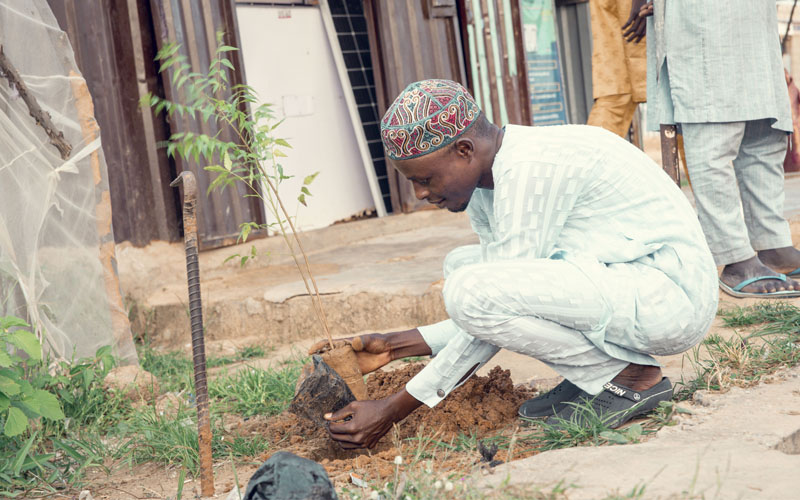+234 912 443 7374

At Rural Water Access Foundation (RUWAF), we understand that rural communities are on the frontline of climate change impacts—facing flooding, drought, water shortages, and displacement. Our Climate Education and Resilience Programs aim to equip communities, especially youth and women, with the knowledge and skills needed to adapt, mitigate risks, and contribute to a more sustainable future.
We begin by conducting participatory climate risk assessments to identify the specific vulnerabilities and challenges faced by each community. This includes analyzing past climate-related disasters, land degradation, water scarcity, and the impact of extreme weather on livelihoods.
We work closely with local leaders, farmers, women's groups, and youth associations to ensure the process is inclusive and reflective of lived experiences.
RUWAF facilitates climate education sessions in schools, community centers, and local gatherings. These sessions cover:
- Basic concepts of climate change and global warming
- Human activities contributing to climate change
- Local climate adaptation and mitigation strategies
- Sustainable water and land use practices
- The importance of tree planting, recycling, and clean energy
We use interactive tools—such as visuals, storytelling, community theatre, and local language translations—to enhance understanding and retention.
We establish climate clubs in public schools to foster environmental responsibility among young people. These clubs participate in activities like: - Tree planting and nurturing - Clean-up campaigns - Water conservation projects - Climate-themed debates and art competitions Teachers and student leaders receive training and support to integrate environmental education into school culture.
We promote afforestation and reforestation by organizing tree planting drives with local stakeholders. RUWAF provides climate-resilient and native tree seedlings, trains communities on nursery development, and mobilizes youth for maintenance and monitoring. In areas affected by soil erosion or deforestation, we implement land restoration efforts to rehabilitate degraded ecosystems and improve water retention.
RUWAF advocates for stronger local climate policies by building the capacity of community actors to engage with local government and climate institutions. We facilitate dialogue platforms for community voices—especially youth and women—to influence decisions around resource use, disaster preparedness, and environmental protection.
We organize training workshops for farmers, water users, and local cooperatives on climate-smart agriculture, drought-resistant crops, water-saving irrigation techniques, and sustainable livelihoods. These practical skills empower communities to adapt to changing conditions and reduce dependence on climate-vulnerable practices.
In flood-prone or drought-affected communities, RUWAF supports emergency preparedness plans, early warning system awareness, and safe water storage techniques. We also collaborate with local disaster response agencies to ensure rapid and coordinated action during climate shocks.
We monitor the outcomes of our climate interventions using community feedback, school attendance, vegetation recovery, and resilience indicators. Success stories and lessons learned are documented and used to scale successful models to neighboring communities.